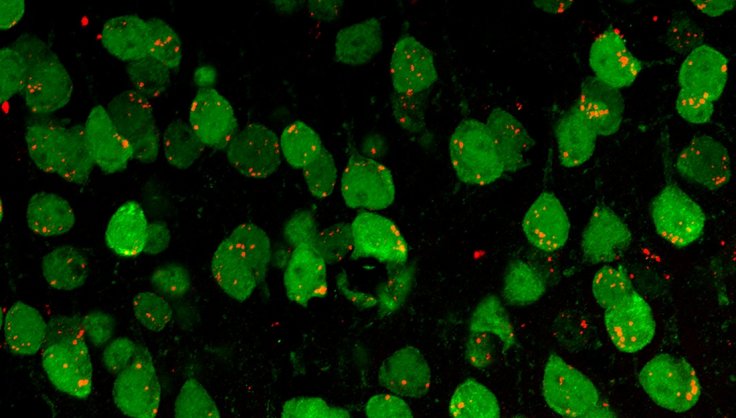In what could be a potential breakthrough in treating brain Injuries, researchers at Texas A&M University found that brain damage may be reversed one day with a nasal spray. Researchers found that administering tiny particles — called extracellular vesicles — through the nose can prove to be a low-cost, non-invasive and preventative treatment to treat brain injuries.
Extracellular vesicles are small particles that play an important role in communication between cells. They pinch off part of a cell and latch on to other cells, thereby sharing the contents. The research, published in Journal of Extracellular Vesicles, found that the vesicles may help the renewal of brain cells and reducing inflammation since they carry proteins and other fragments that help promote brain cell renewal and new connections between the cells.
"Imagine a football player who has a concussion," study author Ashok Shetty said. "You just have to give him a nasal spray of EVs [extracellular vesicles] to prevent long-term adverse effects such as cognitive and mood dysfunction."
Shetty suggested that extracellular vesicles nasal sprays can be used as a therapy in almost all settings while treating a brain injury.

The Texas A&M University scientists isolated the vesicles under a microscope and found that they carry proteins and microRNAs that help redevelop brain cells in the hippocampus — an area in the brain responsible for learning and memory.
The researchers arrived at the findings by administering extracellular vesicles doses to rodents. The vesicles are derived from so-called human induced pluripotent stem cells (iPSC), obtained from skin or blood cells that were reprogrammed. The researchers noted that the vesicles helped with the generation of new nerve cells in the brain area that controlled memory and the in the mouse models the vesicles reached nearly all regions of the brain in only six hours. The findings also showed that the vesicles reduced inflammation.
Even though the research in the brain damage was in early stages, Shetty said the use of the nasal spray would potentially change dementia treatment. Dementia is an umbrella term for memory loss, language, problem-solving and overall thinking capabilities affecting daily life activities.
The researchers also noted that while more research was required, there "likely won't be any side effects" with the nasal spray treatment since the vesicles are tiny. Their small size would likely not lead to the blocking of blood vessels or trigger an immune response.









